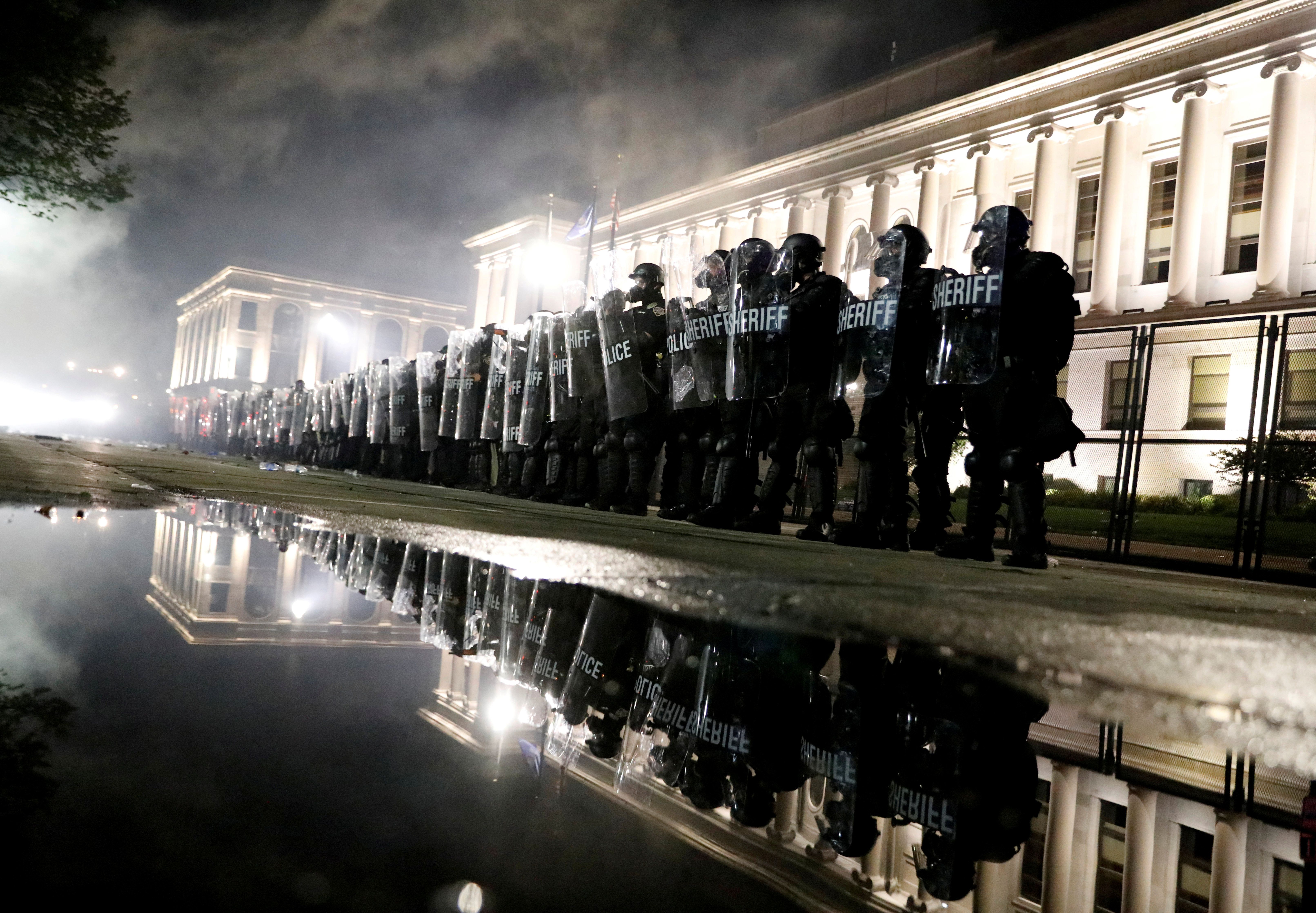Chaos and anti-racism riots in Wisconsin: A white teenager was arrested Wednesday on murder charges a day after killing at least one of two people shot dead amid street protests over the police shooting of an unarmed Black man in the US city of Kenosha, Wisconsin. Also on Wednesday, the NBA postponed several playoff basketball games after players for the Milwaukee Bucks, Wisconsin's home team, went on strike to protest racial injustice. Although the exact details are still unclear, the two killings occurred after a group of armed civilians — which police described as vigilante militia groups — clashed with protesters once police had cleared the area to enforce a curfew. The protests were sparked by the case of 29-year-old Jacob Blake, who has been left paralyzed after being shot seven times in the back by a white police officer on Sunday. We're watching to see if the protests and riots spread to other parts of the country as was the case back in June, when the killing of George Floyd (also a Black man) by a white police officer in Minneapolis ushered in a wave of mass rallies calling for a national reckoning on racial justice and police brutality, including proposals to reform the police itself in many US cities (and around the world, too). The unrest in Kenosha also takes place as the US presidential election campaign ramps up — President Trump will likely push his tough law-and-order approach to dealing with violent protesters to draw a contrast with his opponent Joe Biden, whom Trump wants to portray as soft on crime.
Coronavirus in Gaza: The Gaza Strip has been placed under lockdown for 48-hours after community transmission of COVID-19 was detected there for the first time. Until now, all known cases in Gaza were linked to quarantine facilities where travelers returning from abroad were required to remain in isolation for 21 days. But these new cases — and one death —were all linked to a family living in the al-Maghazi refugee camp with no known travel record. To date, blockades and restrictions on movement imposed by Israel have spared the impoverished Strip, run by the militant group Hamas, from widespread infection. Gaza, home to over 2 million people, hosts some of the most densely populated refugee camps in the world, where social distancing is impossible. Coupled with a crippled healthcare system, poor sanitation and regular power outages, a deadly outbreak of disease in the enclave would be catastrophic, health experts warn.
China keeps Xinjiang locked down: Residents of China's northwestern Xinjiang region are fed up with the draconian measures that authorities have continued to impose to stop the spread of the coronavirus, despite the fact that the region has not registered a positive case for more than a week. After several COVID-19 outbreaks were reported there in late July, Beijing ordered a sweeping lockdown in Xinjiang, with harsh restrictions such as punishing violators by handcuffing them to their homes or forcing ethnic Uighur residents — who have long been victims of human rights violations by the Chinese government — to take traditional Chinese medicine to ward off the coronavirus. What's more, the strict stay-at-home order remains in place despite the fact that the region has not registered a positive case for more than a week. Xinjiang residents can't take it anymore, and have gone to social media to vent their frustration. Although the lockdown is roughly similar to the one China imposed in Wuhan to contain the first outbreak of COVID-19 back in February, its duration and severity have prompted concerns that Beijing is being too harsh on its anti-coronavirus strategy in Xinjiang, where community services are not as developed as Wuhan's, so people banned from going outside to buy food are often left hungry in their own homes.
More For You
In this Quick Take, Ian Bremmer weighs in on the politicization of the Olympics after comments by Team USA freestyle skier Hunter Hess sparked backlash about patriotism and national representation.
Most Popular
100 million: The number of people expected to watch the Super Bowl halftime performance with Bad Bunny, the Puerto Rican superstar and newly minted Album of the Year winner at the Grammys.
Brazilian skiers, American ICE agents, Israeli bobsledders – this is just a smattering of the fascinating characters that will be present at this year’s Winter Olympics. Yet the focus will be a different country, one that isn’t formally competing: Russia.
What We’re Watching: Big week for elections, US and China make trade deals, Suicide bombing in Pakistan
Japanese Prime Minister Sanae Takaichi, president of the Liberal Democratic Party (LDP), appeals for a candidate during a street speech of the House of Representatives Election Campaign in Shintomi Town, Miyazaki Prefecture on February 6, 2026. The Lower House election will feature voting and counting on February 8th.
Japanese voters head to the polls on Sunday in a snap election for the national legislature’s lower house, called just three months into Prime Minister Sanae Takaichi’s tenure.
